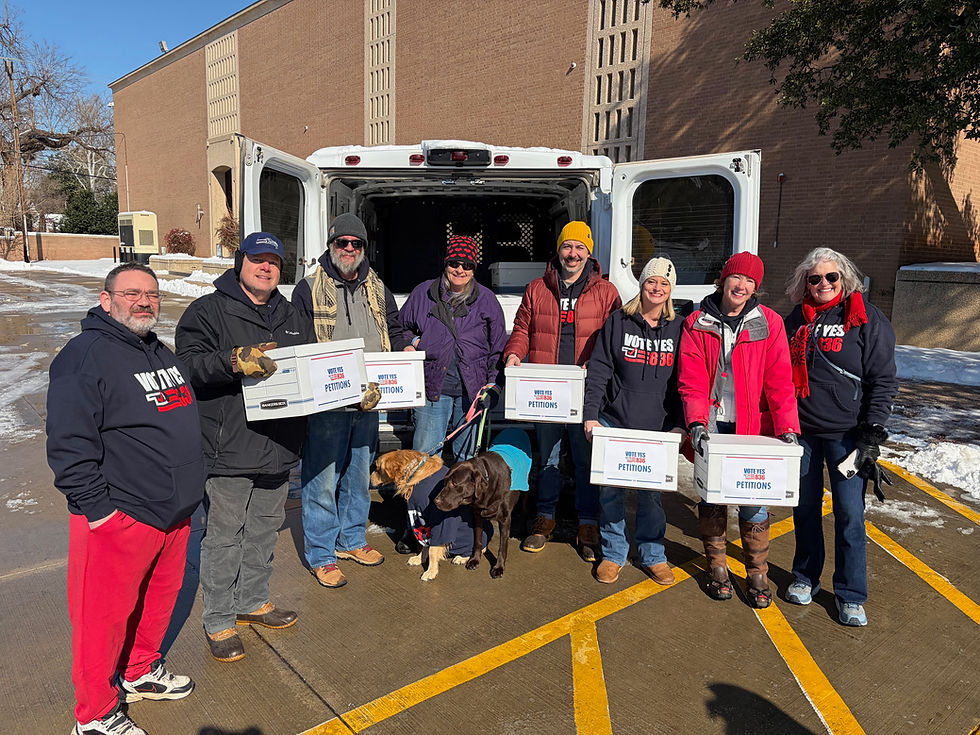Political strategist speaks on open primaries’ potential effect on voter, party engagement
- Apr 28, 2025
- 2 min read
25 April 2025
By Natalie Roe, OU Daily
On Thursday, April 24, the Carl Albert Center hosted a "Lunch and Learn" event with Republican political strategist and pollster Pat McFerron to discuss open primaries and State Question 836.
The presentation began with an introduction by Michael Crespin, OU political science professor and director of the Carl Albert Center, who highlighted McFerron’s background and credentials.
“He's a founding partner at CMA Strategy, which is a leading public affairs firm,” Crespin said. “His career includes working with multiple presidential campaigns, plus successful U.S. Senate, gubernatorial, congressional races and over 20 victorious state ballot questions.”
The first half of McFerron's presentation focused on Oklahoma, in which he explained that the state primarily has a closed primary system and that there are only three recognized political parties: Republican, Democrat and Libertarian.
According to the Oklahoma State Election Board, Oklahoma operates under a closed primary system, which means that, in most cases, only voters registered with a specific political party can vote in that party’s primary election. The Republican and Libertarian parties in Oklahoma have chosen to k
eep their primaries closed. However, the Democratic Party has opted to allow Independents to participate in their primaries. This means that while Independents are excluded from Republican and Libertarian primary ballots, they are permitted to vote in the Democratic primaries.
State Question 836 would allow registered voters in Oklahoma to vote in any primary election, even if they’re not affiliated with the party hosting that primary.
McFerron argues that this change would ensure that every voter has a voice in every election, and it would also shift control from the political parties back to the voters.
“The party really controls things … not for the private organizations from the political parties,” McFerron said. “Political parties are not government entities. They are private organizations, but they control the process at this point.”
McFerron said primary elections often determine more important decisions than general elections. McFerron said this is a problem everywhere, but it is particularly severe in Oklahoma where there is a Republican majority.
“I am conflicted all the time,” McFerron said. “My vote is less than somebody that lives in a cohesive area where you're just one party or the other, where you could pick and choose, because my vote is not going to count.”
According to McFerron, the notion that general elections are meaningless has led to a rapid decline in voter turnout.
“People are conditioned to vote in November. This is where Oklahoma's voting age population turned out right,” McFerron said. “Why do you think more people don't vote? It's because they don't think their vote matters.”




